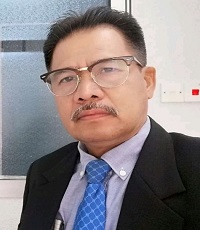
Ahmad Shabudin Ariffin
Perlis Islamic College University MalaysiaTitle: Ecosystem services in pasture by shelter created from the hybrid sterile bioenergy
Abstract:
Recent years have seen a significant increase in interest in mangrove biodiversity and conservation due to better awareness of the values, functions, and features of mangrove ecosystems as a result of scientific investigation. Mangrove forests are a unique coastal ecosystem defined by their specific adaptations that allow them to live abundantly in brackish water and saline soil, on sheltered shores that undergo fresh and salt-water influx regularly. Despite accounting for only about 1% of global forest coverage, mangroves are keystone ecosystems that provide a variety of critical ecological processes and environmental services to both terrestrial and marine biomes. Even though mangroves play an important role in the global carbon cycle and climate change, their extent has inexorably decreased in recent decades. It is mostly because of human activities such as aquaculture expansion, coastal development, and overharvesting that the population has declined. As a result of recent years' efforts, global society has become more mindful of and concerned about the subject of climate change, particularly global warming. It has been particularly noticeable in recent years that global warming is present and having an impact on human comforts, as well as its existence and effects. Heat waves, forest fires, sea level rise, pollution, habitat loss, and a reduction in biodiversity resources are just a few of the extreme events that have occurred recently to highlight the presence of global warming. On the other hand, the mangrove species at risk are the main concern to be conserved and preserved for future generations. The study aims to promote coastal and mangrove forest conservation and natural and cultural value preservation through the rehabilitation of swamp forests (mangrove) in the north coast area of Malaysia. This project directly promotes the achievement of sustainable development goals (SDGs) through the rehabilitation and restoration of degraded ecosystems and the promotion of the recovery of threatened mangrove species. This research will rely on case studies and observations of a rehabilitation project on Malaysia's north coast. Observational monitoring of key indicators is important to determine the performance of rehabilitation or restoration projects' aims and objectives, as well as to guide adaptive management and decision-making.
To achieve this objective, additional investment and commitment to research and adaptive management methods would be required. These concepts are illustrated through case studies of mangrove restoration and rehabilitation programmes in the northern coastal area of Malaysia, which are both hotspots for mangrove biodiversity and are experiencing ongoing loss and degradation. The results demonstrated that the success of the mangrove rehabilitation project and the number of endangered species restored will determine the expected outcome. This current study has both practical and social implications. Regarding the practical contribution, the countries should strengthen the legislative framework for management of mangrove diversity and conservation.
Biography:
Dr. Ahmad Shabudin Ariffin is a senior lecturer at Faculty of Business and Management Science, Perlis Islamic College University (KUIPs), Malaysia. He has been appointed as the Director for Research and Innovation Management Centre (RMIC) KUIPs since 1st October 2019 which offers national and international networking, research collaboration as well as community & industry engagement. Dr. Ahmad Shabudin previously has been a senior lecturer at Universiti UtaraMalaysia (UUM) for seven years. During his time, he has published extensively in local and international journals as well books on supply chain and logistics management. He has completed his Bachelor from University of Science Malaysia (USM) and Master’s degree as well as Doctoral degree from Universiti Utara Malaysia (UUM) which broaden her horizon as an academic in technology, operations, and logistics management. Along with his experience and educational background he has been appointed as board of director for KLPK Ternak Sdn. Bhd. Dr. Ahmad Shabudin is a professional membership for International Supply Chain Education Alliance (ISCEA) since October 2021 and also a member for Federation of Malaysian Unit Trust Managers since 2010.

